#FreeViasna: Weekly news digest on Viasna’s imprisoned human rights defenders
On September 17, #FreeViasna campaign of solidarity with the imprisoned Viasna members was launched. Here’s the latest news about them.
Viasna members took part in the Chernobyl Way
On April 26, the Chernobyl Way rally dedicated to the 36th anniversary of the Chernobyl disaster took place in Vilnius. This year the relevance of the rally is more than ever, as the environmental agenda intertwined with the anti-war agenda.
Viasna human rights defenders also participated in the event. April 26th is also the foundation day of the organization, which has been defending human rights for 26 years in a row.
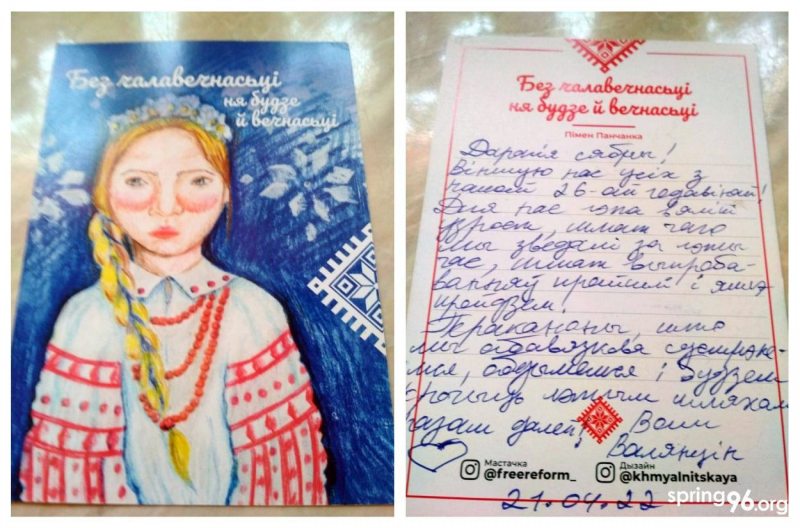
- Postcard from Valiantsin Stefanovich
Human rights activist Valiantsin Stefanovich congratulated his colleagues from the detention center, where he has been kept for more than 9 months:
“Dear friends,
Congratulations to all of us on our 26th anniversary! It has been such a long way, we have been through a lot and we will have to pass a lot more. I am convinced that we will definitely meet, hug and walk this path together!
Yours, Valiantsin”
Many Belarusian NGOs and representatives of the international community joined in congratulating Viasna on its 26th anniversary as well.
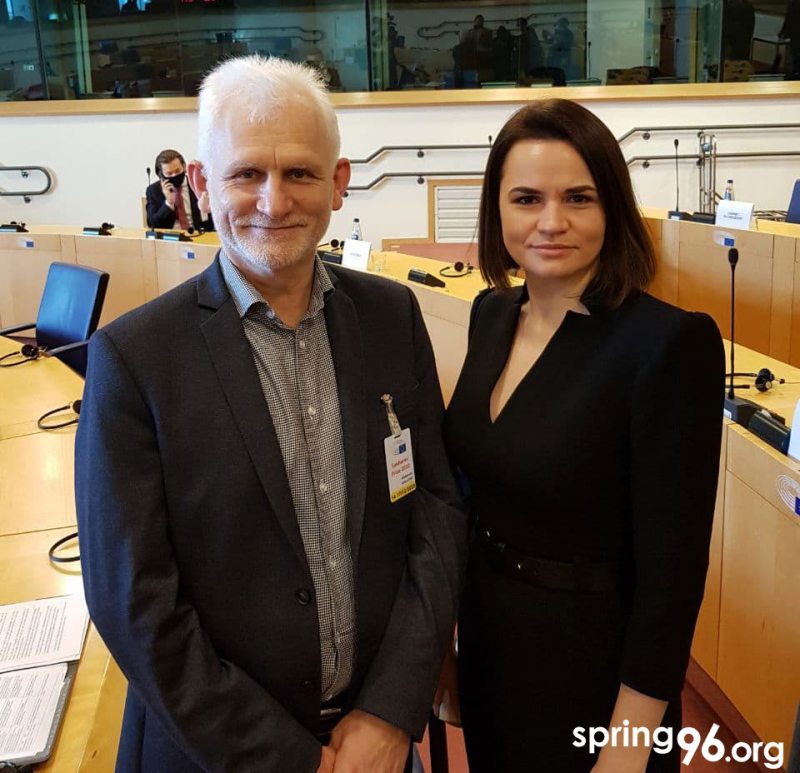
“You are the force that moves Belarus forward”: Viasna turns twenty-six
Freedom to Write Index 2021
PEN America has released the third edition of its annual Freedom to Write Index, which lists writers and public figures imprisoned or detained during 2021 in connection with their writing or otherwise exercising their right to freedom of expression.
In Belarus, at least 10 writers and public intellectuals spent time behind bars during 2021, among them Viasna chairman Ales Bialiatski.
The trial of Marfa Rabkova, Andrei Chapiuk, and eight other political prisoners was closed
On April 25, the trial of ten political prisoners began in Minsk City Court: coordinator of the Viasna Volunteer Service Marfa Rabkova, volunteer Andrei Chapiuk, political prisoners activists of the anarchist movement Akikhiro Hayeuski-Hanada, Aliaksandr Frantskevich, Aliaksei Halauko, Aliaksandr Kazlianka, Pavel Shpetny, Mikita Dranets, Andrei Marach, and Danila Chul.
At the beginning of the trial, Andrei Chapiuk challenged Judge Siarhei Khrypach, as the court did not give him the opportunity to get acquainted with some of the case materials. However, the lay judges involved in the process rejected the challenge.
Prosecutor Andrei Buhuk requested a hearing in a closed session, because “there are materials of extremist nature in the materials of the criminal case”.
All political prisoners and their defenders were against closing the trial. Marfa Rabkova stated: “Strongly against.”
Judge Siarhei Khrypach granted his petition and decided to close the hearing. All attendees were ordered out of the courtroom.
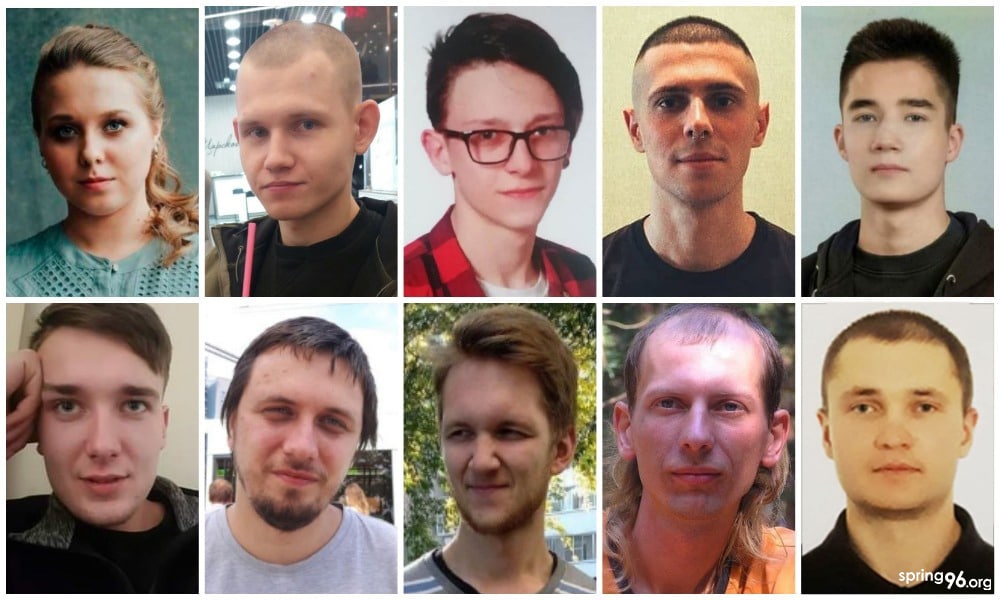
The trial of Marfa Rabkova, Andrei Chapiuk and eight other political prisoners to be held behind closed doors
Kafkaesque accusations against the staff of Viasna ahead of its 26th anniversary
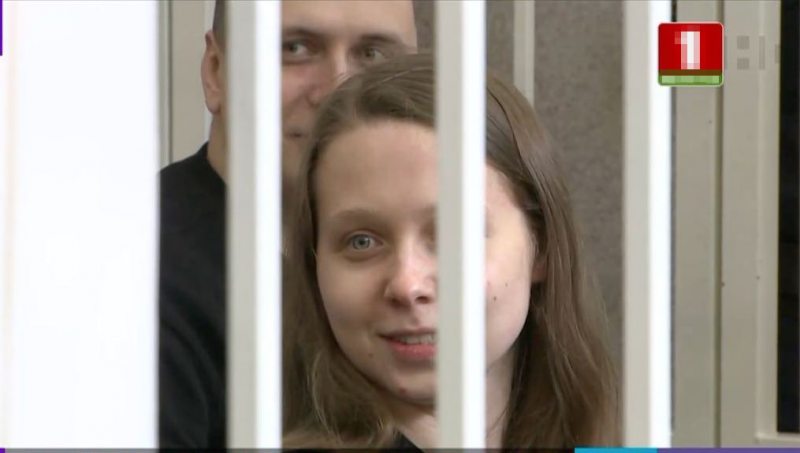
- Marfa Rabkova in court on April 25
Nine international human rights organizations issued a joint statement in support of Marfa Rabkova and Andrei Chapiuk, whose trial began one day before the 26th anniversary of Viasna.
“Marfa Rabkova encouraged volunteers to engage in human rights work, coordinated elections’ and protest observation campaigns and helped to collect donations for political prisoners. Over her past 19 months in detention, Marfa’s health has drastically deteriorated due to the lack of adequate medical care.”
New postcards set with Marfa Rabkova’s drawings from the Freedom Postcards project
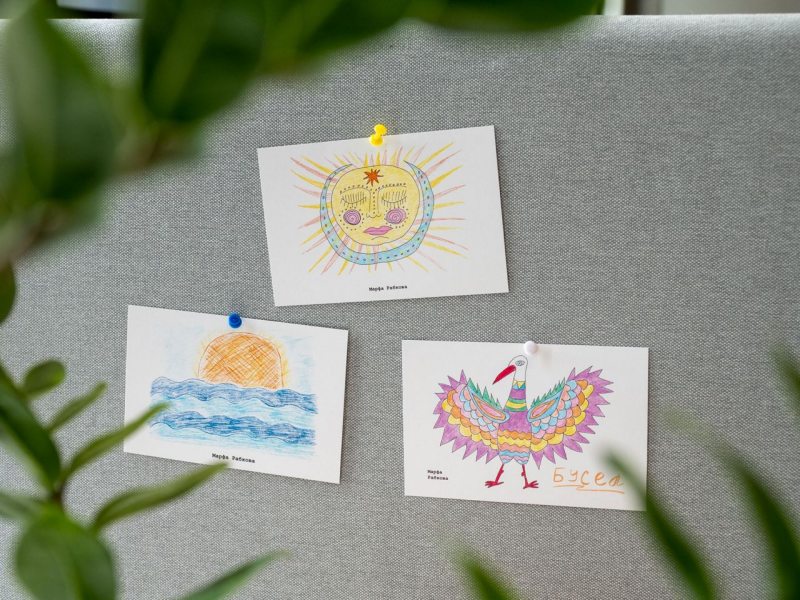
You can get your postcards delivered anywhere in the world for a donation of 5 or more euros after sending the payment confirmation together with the delivery address. The contacts can be found here: https://linktr.ee/pashtouki
No updates on four Viasna members
There was no news from lawyer Uladzimir Labkovich and the head of Viasna Ales Bialiatski last week. There is also no update on the head of the Homieĺ branch of Viasna Leanid Sudalenka. It is known that a lawyer is still not allowed to visit him. After a volunteer from Rečyca Tatsiana Lasitsa was transferred to a penal colony, letters from her reach only her father.


















